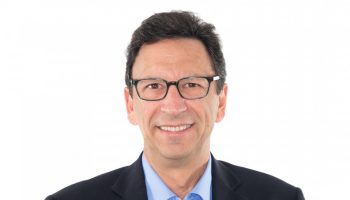My very first professional job out of college was as an adviser at the Disability Resource Center at my alma mater. I was recruited to that position because the director of that office had witnessed me bridge cultural divides on campus as a student leader in many different contexts. I did not have a lot of practical experience working with people with disabilities, so I was hesitant if I would be a good fit for the position. I was intrigued, even surprised, when the director said that “lots of people can be trained for the mechanics of the job – the law, our processes, etc. But, what you have is the ability to be empathetic, to listen and understand, and when needed – to advocate. That is much harder to train.”
I am not sure that I completely bought her reasoning, but I was willing to give it a try. My first six weeks on the job were focused on intense training to understand all aspects of the position without meeting with a single client. I thought I needed a crash course in disability law. While that information was important, I soon found out that the most important skill was understanding each client’s experience and needs as distinct and unique.
For example, the law provided guidance for the rights of all people who were blind or low vision. However, I soon realized that there was tremendous diversity within the category of those were legally blind. Some wanted their books in braille. Others preferred books on tape. Some wanted note takers with typed notes, while others preferred their lectures to be audio recorded.
I soon realized that instead of starting my conversations with clients with any pre-conceived notions of what people with visual impairments needed, I had to start from a blank slate. More importantly, I had to push myself to understand their abilities first, and then address the barriers that impeded their learning. In short, my supervisor was right – it was all about empathy, listening, understanding and advocating.
The same principles are true for Chautauqua. I am grateful for all Chautauquans who have provided me feedback on accessibility issues on our grounds – covering our physical, programmatic and technological offerings. I maintain a long list of accessibility issues and work with my colleagues in Campus Planning and Operations, along with program departments, to address these issues on an annual basis. A list of recent and ongoing accessibility projects is available in the annual IDEA update (visit idea.chq.org).
The challenge is that we are a historic neighborhood and only about five buildings on our grounds were constructed after the passage of the Americans with Disability Act. We have much work to do. As I articulated in my column from last week, this work not only makes ethical or moral sense — it is essential as a business imperative, as well. In the spirit of ongoing feedback and listening, I invite all Chautauquans to participate in an Accessibility Listening Session from 4 to 5 p.m. Monday, Aug. 7, 2023, at the Jessica Trapasso Pavilion at Children’s School.
My overarching goals for this series of columns was to provide insights and practical tips for all Chautauquans on how they can help in our inclusion, diversity, equity and accessibility efforts.
Here are some practical tips that we all can engage in to make our grounds more accessible: First, learn and educate yourself about the experiences of people with disabilities. This includes challenging your own perspectives and what we have been taught about people with disabilities. For example, growing up, I was taught to use language like “wheelchair bound” or “suffers from Down Syndrome.” The more updated language, as requested by people with disabilities, is person-first language without judgments – “person who uses a wheelchair” and “person with Down Syndrome.”
Second, we can all practice everyday acts of inclusion by removing barriers for people with disabilities. These behaviors might include little acts like moving a chair near a doorway that might impede access for people using mobility devices, limiting our chatter in the Amphitheater that might negatively impact people with hearing loss, or speaking with our kids or grandkids about the importance of welcoming neurodiverse youth in their playgroups. It is perfectly OK to offer assistance to people with disabilities if you think it might be needed, but please ask permission first before you intervene and ask what assistance might be most helpful.
The principles for inclusion around disabilities are the parallel across other diverse groups – we should avoid making assumptions or starting a conversation by highlighting a difference. Instead, seek commonality.
We might find ourselves tempted to learn more about someone’s electric wheelchair, but perhaps we start by asking, “What did you think of the lecture today?,” instead. Inclusion is a deliberate, conscious, community act. If we collectively practice acts of inclusion, it will lead to a sense of belonging for all. Bishop Eugene Taylor Sutton’s sermon this past Thursday (available on assembly.chq.org) centered people with disabilities and reminded us that we are called to “embrace everyone as children of God.” I invite us all to do our part to live into that calling and to collective create a more accessible Chautauqua.
Amit Taneja
Senior Vice President
Chief Inclusion, Diversity, Equity & Accessibility Officer





